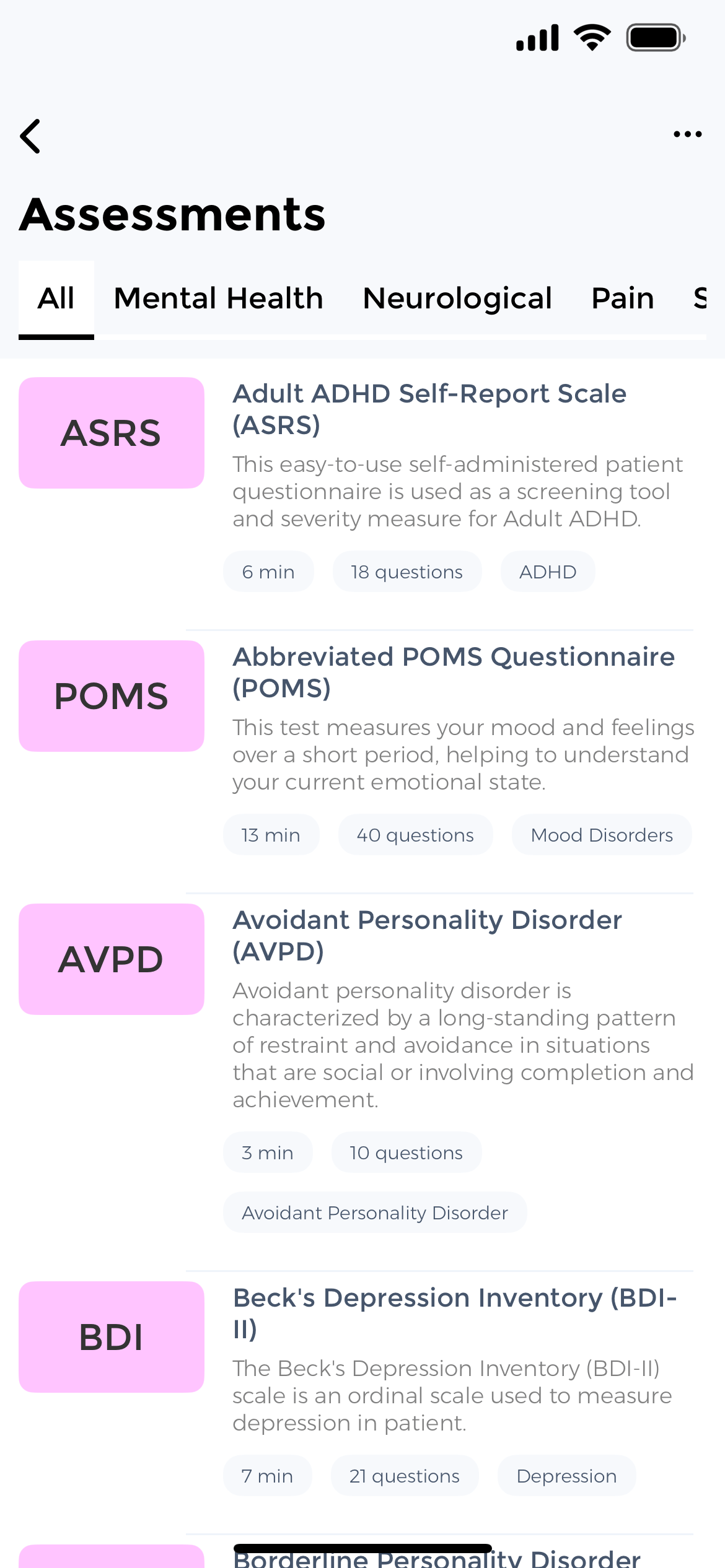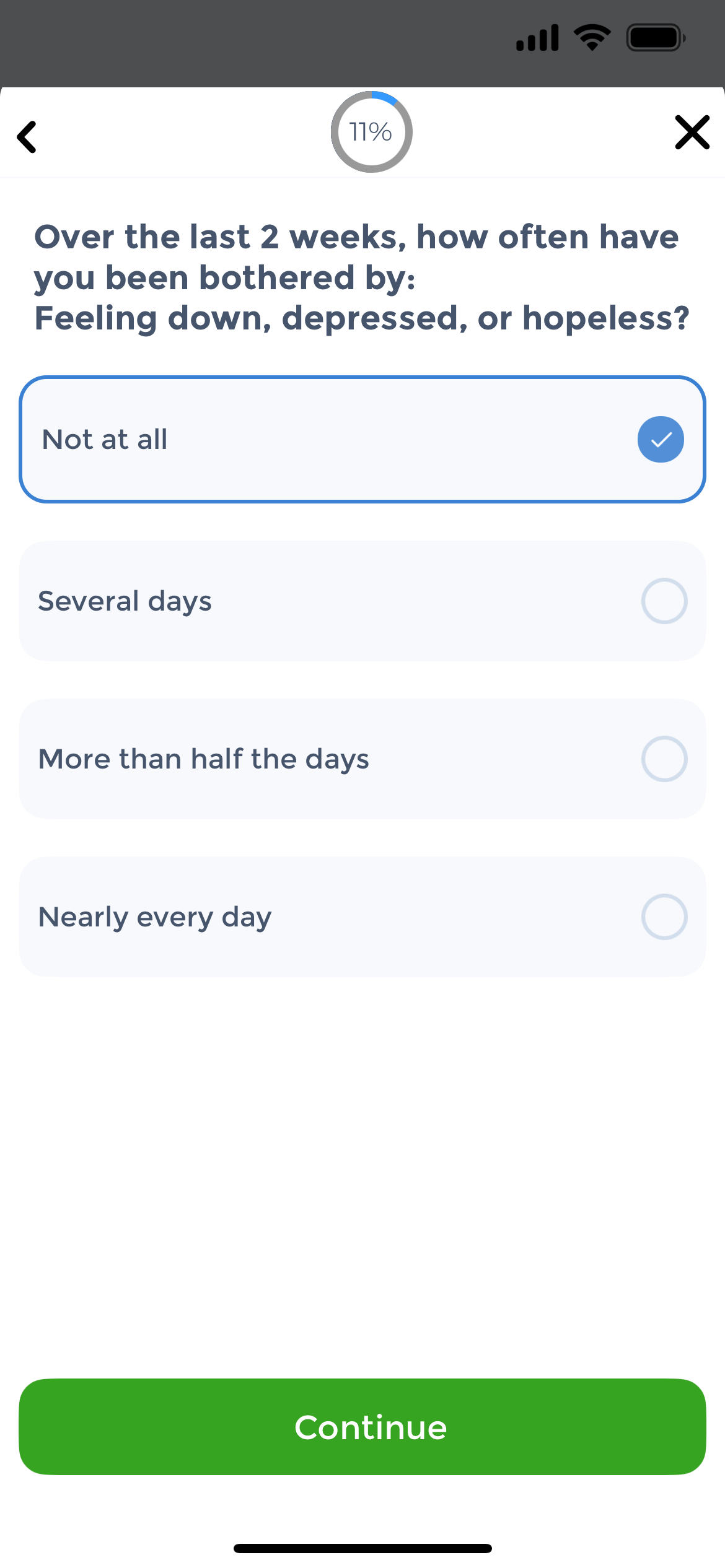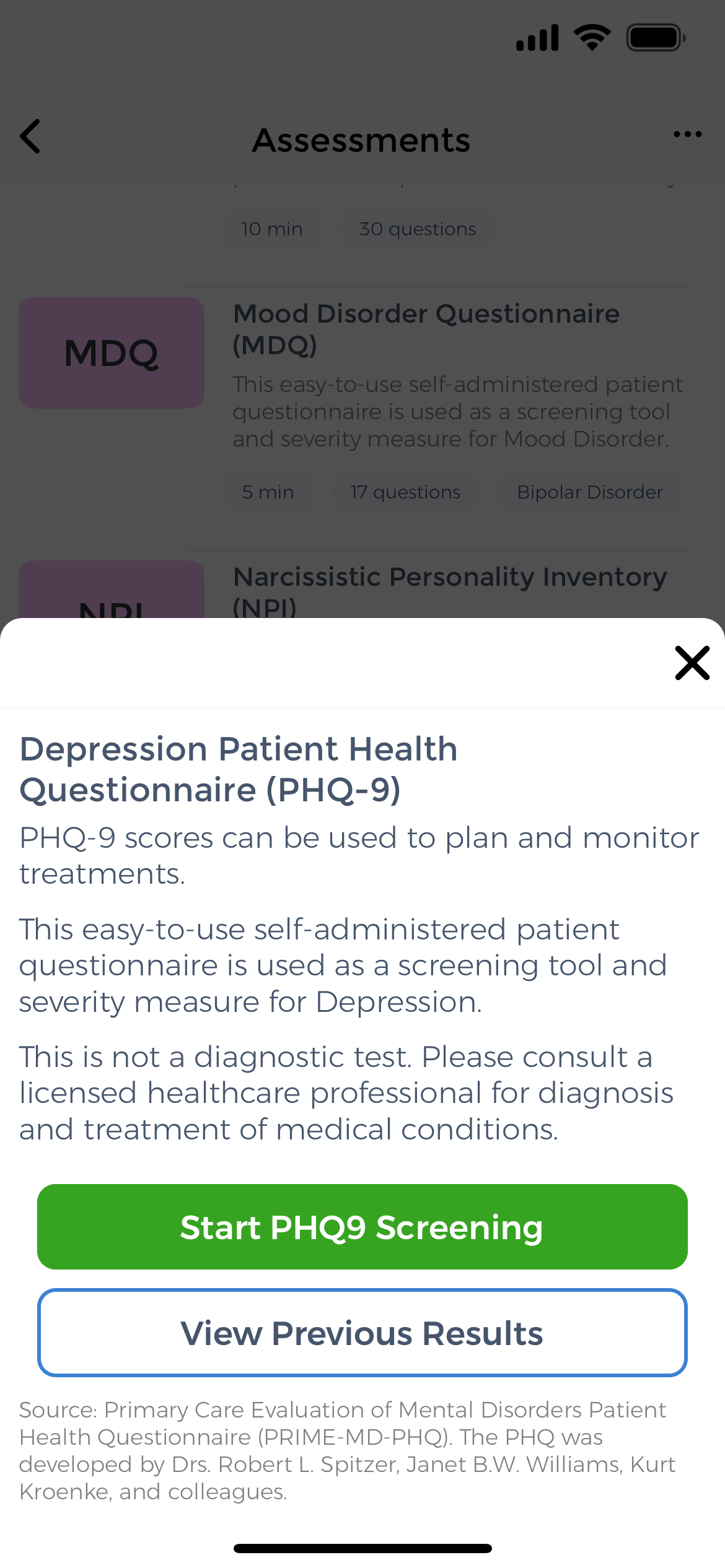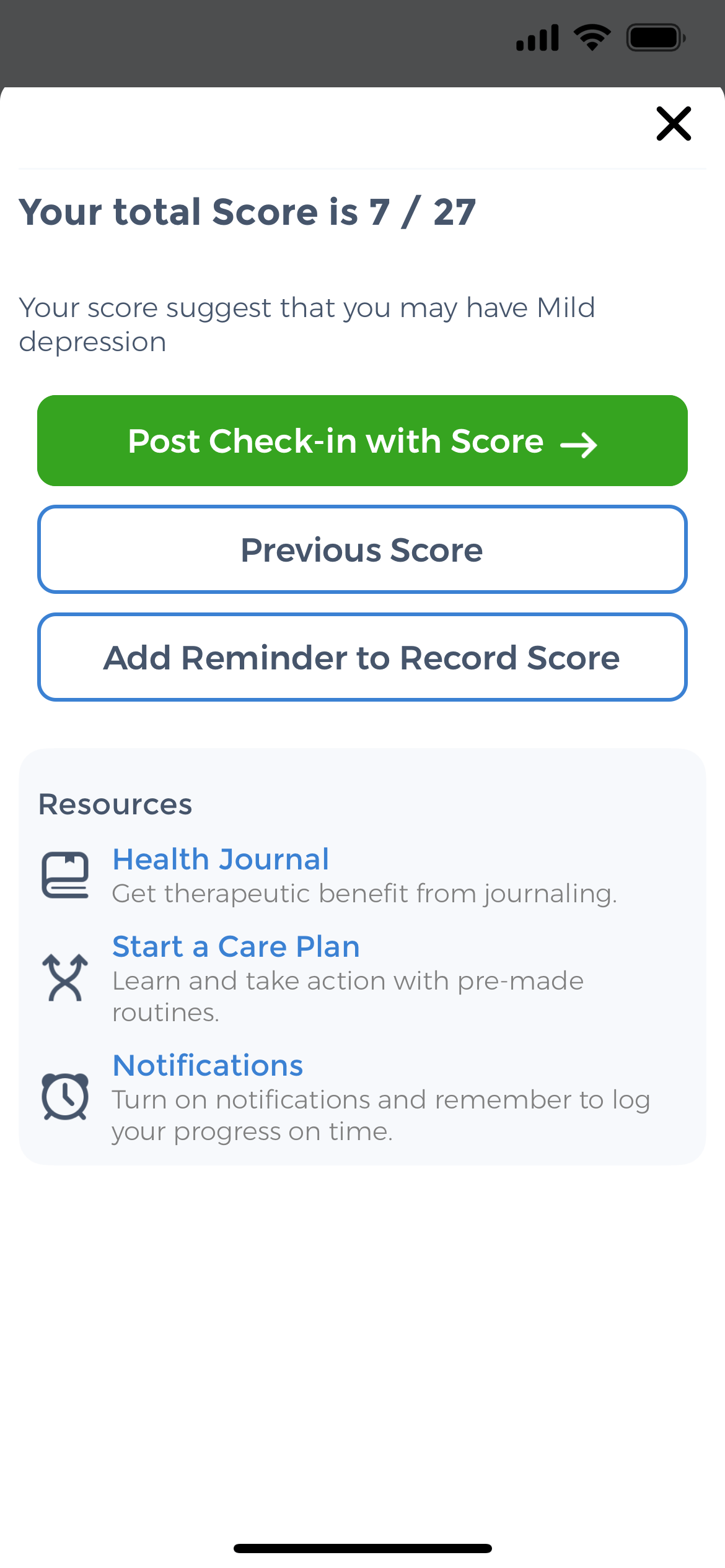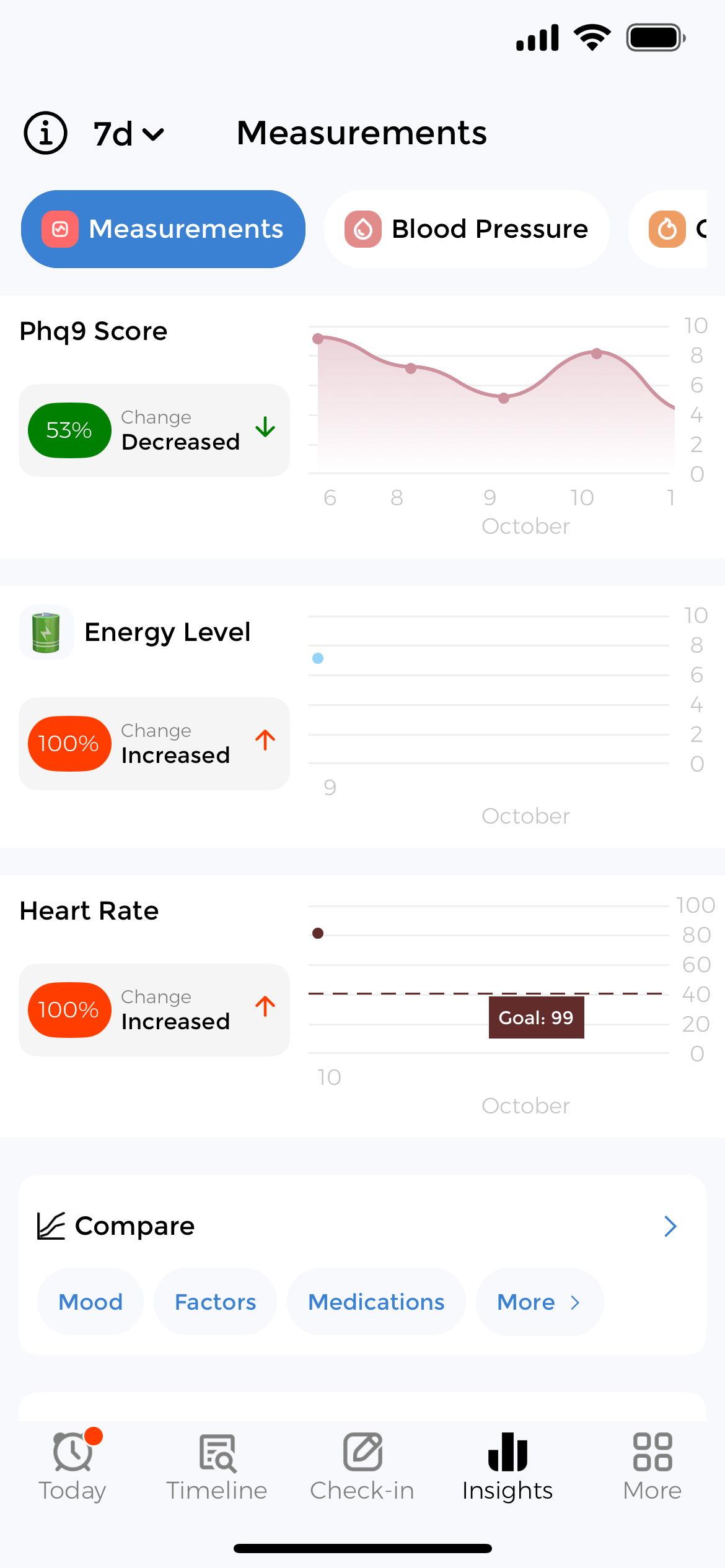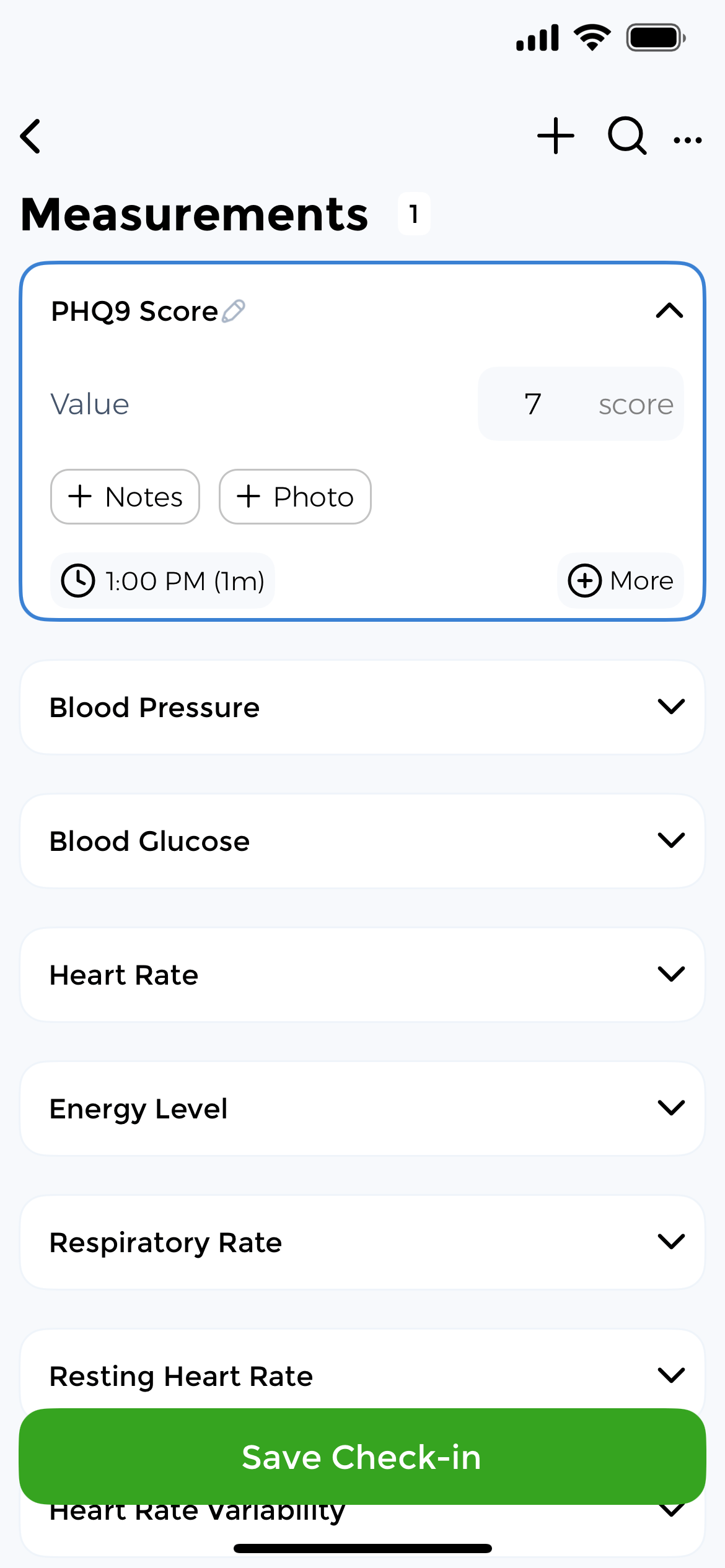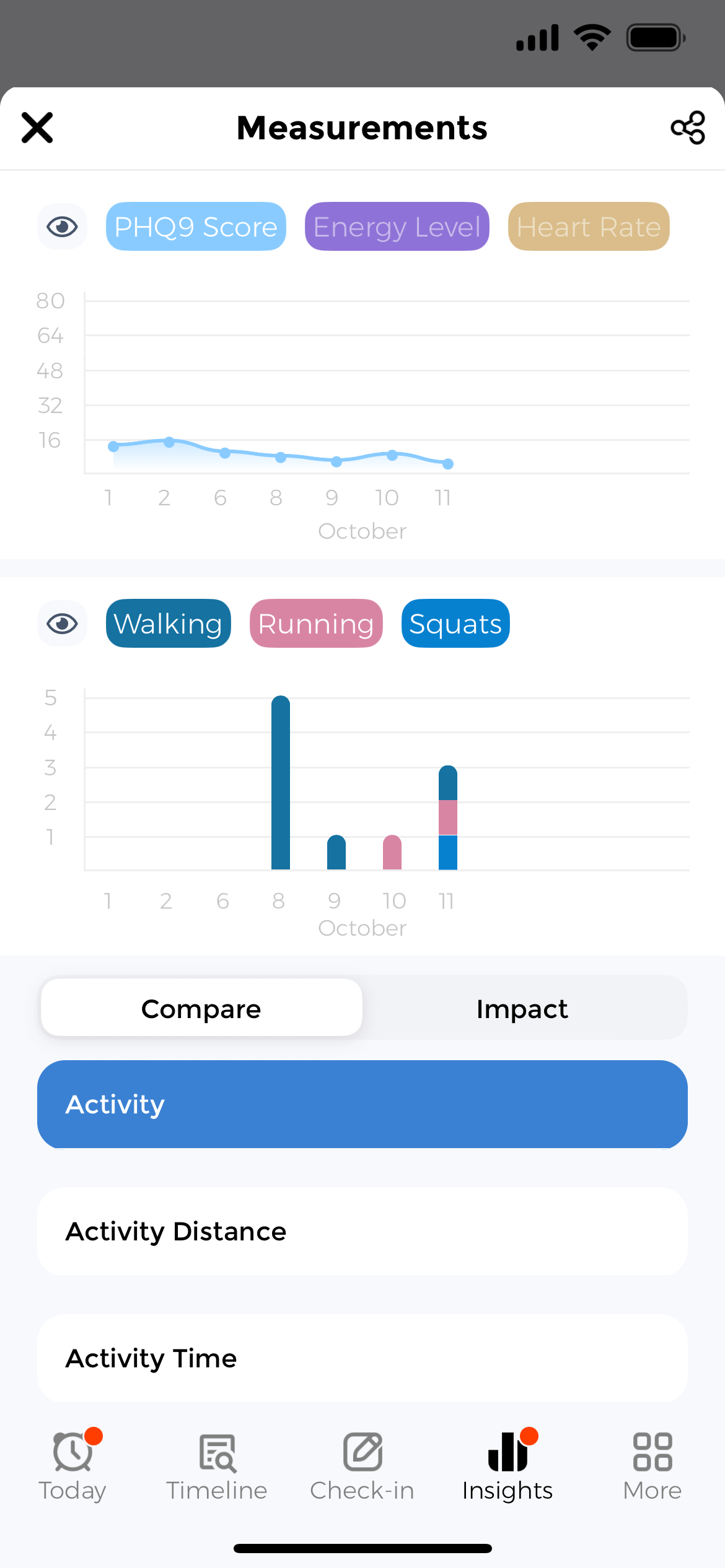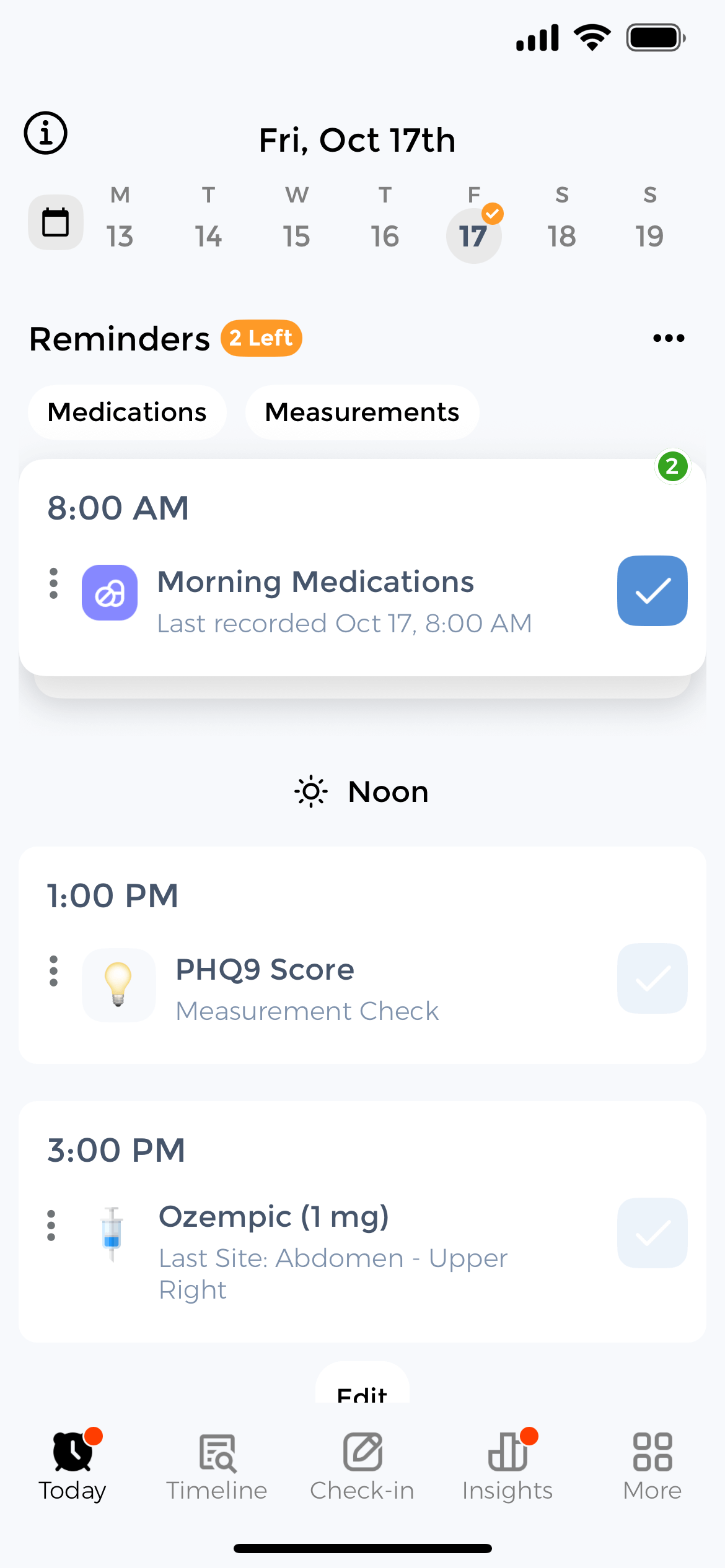What is the Assessment Tracker in CareClinic?+
The Assessment Tracker is a feature within the CareClinic app that allows you to complete, score, and track standardized medical questionnaires used in clinical practice. It includes validated assessment instruments like PHQ-9 for depression, GAD-7 for anxiety, pain scales, sleep disorder questionnaires, and functional assessments.
What types of health assessments can I track?+
CareClinic supports a comprehensive range of validated clinical assessments across multiple health domains. Mental health tools include PHQ-9 (depression), GAD-7 (anxiety), BDI-II, ASRS (ADHD), PCL-5 (PTSD), MDQ (bipolar), and Y-BOCS (OCD). Pain assessments include PCS and ESAS. Sleep tools include ESS and FOSQ-10.
How quickly can I complete a clinical assessment?+
Most assessments in CareClinic take between 1-15 minutes to complete. Quick screenings like WHO-5 take about 1 minute, while GAD-7 takes approximately 2 minutes, and PHQ-9 takes about 3 minutes. Longer comprehensive assessments may take 15-25 minutes.
Are these real validated medical questionnaires?+
Yes, absolutely. CareClinic features standardized clinical assessment instruments that are used in medical research, clinical practice, and healthcare settings worldwide. These are the actual validated tools with official scoring protocols that your doctor, psychiatrist, or therapist would use.
How does automatic scoring work?+
CareClinic uses each assessment’s official scoring algorithm to automatically calculate your results the moment you complete the questionnaire. For example, the PHQ-9 sums responses to generate a total score of 0-27, then provides clinical ranges and severity information.
Can I track multiple assessments for different conditions?+
Yes, you can track unlimited assessments across multiple health conditions simultaneously. Many users monitor both PHQ-9 (depression) and GAD-7 (anxiety) weekly, add pain scales for chronic conditions, and complete sleep questionnaires as needed.
Can I share assessment results with my doctor or therapist?+
Yes, CareClinic makes it easy to share comprehensive assessment reports with your healthcare providers. You can export your assessment history as professional PDF reports that include scores, dates, trends, charts, and comprehensive results.
Is my assessment data private and secure?+
Absolutely. CareClinic is HIPAA-compliant and uses bank-level encryption to protect all your health data, including assessment results. Your assessment scores and health information are stored securely and are never shared with third parties.
How do I track my depression symptoms accurately?+
The CareClinic app has an Assessment tracker that includes the PHQ-9 (Patient Health Questionnaire-9), the most widely used depression screening tool in clinical practice. Complete the 9-question assessment weekly to track your depression symptoms objectively. The app automatically scores your responses and shows you whether symptoms fall in the minimal, mild, moderate, moderately severe, or severe range, giving you concrete data to share with your therapist or doctor.
How can I monitor my anxiety progress over time?+
The CareClinic app has an Assessment tracker that includes the GAD-7 (Generalized Anxiety Disorder-7) scale, a validated clinical tool used by mental health professionals. Set up weekly or bi-weekly reminders to complete the 2-minute questionnaire, and CareClinic will automatically chart your anxiety scores over time. You can see trends, identify triggers by correlating scores with life events, and demonstrate treatment progress to your healthcare provider with visual graphs.
How do I prepare for a mental health appointment with clinical data?+
The CareClinic app has an Assessment tracker that helps you prepare comprehensive clinical data for appointments. Complete relevant assessments like PHQ-9 for depression or GAD-7 for anxiety in the days or weeks leading up to your appointment. Export a PDF report showing your scores over time, severity trends, and correlations with medications or treatments. Bringing objective clinical assessment data helps your psychiatrist or therapist make more informed treatment decisions.
How can I track my pain levels objectively for my doctor?+
The CareClinic app has an Assessment tracker that includes validated pain assessment tools like the Pain Catastrophizing Scale (PCS) and ESAS (Edmonton Symptom Assessment System). Instead of describing pain as “bad” or “worse,” you can provide your physician with standardized scores that quantify pain intensity, interference with daily activities, and emotional impact. Track assessments weekly or monthly to show whether pain management treatments are effective.
How do I measure if my medication is working?+
The CareClinic app has an Assessment tracker that helps you measure treatment effectiveness with clinical precision. Complete a baseline assessment (like PHQ-9 for depression or GAD-7 for anxiety) before starting medication, then repeat the same assessment weekly or bi-weekly. CareClinic’s charts show you whether scores are improving, staying stable, or worsening, providing objective evidence of medication effectiveness to discuss with your prescribing doctor.
How can I track my sleep disorder symptoms?+
The CareClinic app has an Assessment tracker that includes sleep-specific clinical tools like the Epworth Sleepiness Scale (ESS) and FOSQ-10 (Functional Outcomes of Sleep Questionnaire). Complete these validated assessments to quantify daytime sleepiness, sleep quality impact on daily functioning, and other sleep disorder symptoms. Track scores over time to see if CPAP therapy, sleep medications, or behavioral changes are improving your sleep health.
How can I have patients complete assessments before appointments?+
The CareClinic app has an Assessment tracker that patients can use to complete standardized clinical questionnaires independently before appointments. Recommend patients download CareClinic and complete relevant assessments (PHQ-9, GAD-7, pain scales, functional assessments) prior to visits. Patients can then share PDF reports or show you their assessment timeline during the appointment, giving you objective clinical data to inform treatment decisions and saving valuable appointment time.
How do I monitor patient progress between visits?+
The CareClinic app has an Assessment tracker that enables patients to track standardized clinical assessments between appointments, providing you with longitudinal outcome data. When you recommend that patients complete weekly PHQ-9s or monthly pain assessments in CareClinic, they can share trend reports at follow-up visits showing treatment response, symptom changes, and medication effectiveness with validated clinical metrics rather than subjective recall.
How can I collect standardized patient-reported outcomes?+
The CareClinic app has an Assessment tracker that includes validated patient-reported outcome measures (PROMs) used in clinical research and practice. Direct patients to complete standardized instruments like PHQ-9, GAD-7, PCS, ESAS, or functional assessments in the app. Patients can export comprehensive reports with scores, severity interpretations, and trend graphs, giving you standardized outcome data to support clinical decision-making and quality improvement initiatives.
How do I track chronic condition symptoms consistently?+
The CareClinic app has an Assessment tracker that supports condition-specific clinical questionnaires for chronic disease management. Complete relevant assessments like BASDAI for ankylosing spondylitis, GSRS for gastrointestinal symptoms, MIDAS for migraine disability, or disease-specific quality of life measures. Set up reminder schedules (weekly, monthly, or custom intervals) to maintain consistent tracking and identify patterns, exacerbations, or treatment responses over time.
